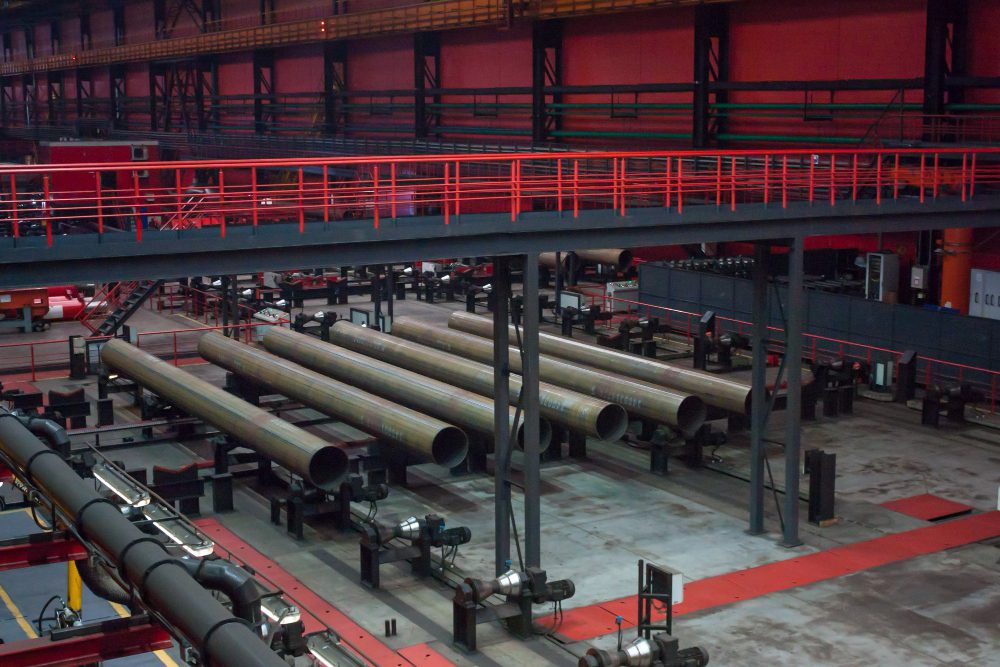Unlocking the Secrets Behind Steel Pipe Manufacturing

The process of manufacturing steel pipes may not be a daily topic of conversation. Still, it’s a process that significantly impacts multiple industries—oil and gas, construction and utilities, to name a few. Understanding the meticulous procedure that transforms raw steel into durable pipes heightens your knowledge and helps you make an informed decision when collaborating with industrial pipe suppliers. Let’s unravel this complex process step by step.
What Are the Initial Stages of Steel Fabrication?
The fabrication of steel pipes starts with raw steel, generally sourced in the form of billets or coils. These raw materials undergo initial shaping processes like piercing and elongation to form a round hollow tube. Additionally, chemical compositions and mechanical properties are thoroughly analyzed for consistency. Following that, hydrostatic testing ensures there are no leaks, flaws or weaknesses in the pipe. Moreover, the pipe is subjected to dimensional checks to guarantee uniformity in terms of diameter, length and thickness.
The Unique Manufacturing Methods of Popular Steel Pipes
Seamless Steel Pipes: The billet is heated to high temperatures to produce seamless steel pipes, enabling it to be stretched and pulled over a form until it takes the shape of a hollow tube. The absence of welding ensures these pipes are incredibly strong and versatile, capable of withstanding high pressure.
Welded Steel Pipes: Welded pipes start as flat steel plates. This plate is then shaped into a cylindrical form and the edges are welded together. The quality of the weld plays a crucial role in determining the pipe’s structural integrity.
Electric-Resistance- Welded Pipes: These pipes are manufactured by cold-forming steel and electrically welding the longitudinal seam. They are ideal for conveying gas, water and oil in low- and high-pressure applications.
Longitudinal Welded Pipe: In this method, the steel sheet is rolled into a pipe shape and the edges are welded longitudinally. These pipes are generally used in the oil and gas sector due to their ability to withstand high pressures.
Spiral Welded Pipe: These pipes are produced by spirally winding a steel coil and welding the seam at an angle. This design provides an enhanced strength-to-weight ratio, making them ideal for long-distance conveying applications.
Why Would You Find the Best Industrial Pipe Suppliers?
- Quality Assurance: Top industrial pipe suppliers have rigorous quality control measures, ensuring each pipe meets industry standards and specifications.
- Customization: Renowned suppliers offer customization options, allowing you to get pipes that fit specific project requirements perfectly.
- Expertise: Pipe supply contractors are knowledgeable about the various manufacturing methods. Thus, they can guide you in selecting the most suitable type of pipe for your needs.
- Cost-Efficiency: Well-established industrial pipe suppliers usually have long-term relationships with manufacturers, enabling them to offer competitive pricing.
- Reliability: Trustworthy suppliers are consistent in their product quality and delivery timelines, eliminating potential delays in your project schedules.
Your One-Stop Destination to Meet All Piping Demands
If you’re on the lookout for high-quality, durable and versatile steel pipes, Bison Pipe is the name you can trust. Our strong industry presence and commitment to quality make us one of the most reliable industrial pipe su

